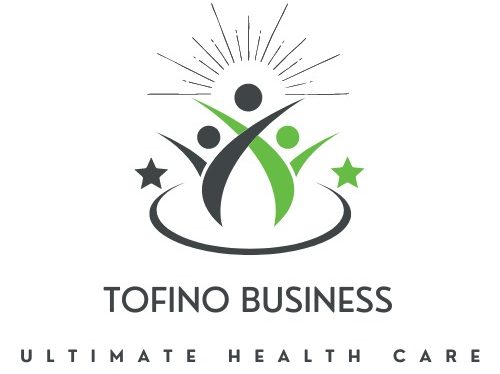Search here
Find Health Supplement Here
What are Health Supplements?
Dietary supplements are like little helpers that give your body extra nutrients it might need. They can make you healthier overall and might even lower the chances of some health problems.
Sometimes, a doctor might suggest you take a dietary supplement. For example, if you don’t have enough iron in your body (a condition called iron deficiency anemia), they might tell you to take an iron supplement. Or if you’re at risk of osteoporosis, they might recommend calcium supplements.
A doctor might suggest a dietary supplement if:
– You have a high chance of getting sick and need more of a certain nutrient to help prevent it.
– You’re pregnant or breastfeeding and need extra nutrients for you and your baby.
– You have a health condition, like kidney problems, that makes it hard for your body to absorb nutrients.
– Your diet is limited and doesn’t give you all the nutrients you need.
– You’re not eating enough and aren’t getting the right nutrients.
– Lab tests show you’re low on a certain nutrient.
– You’re older and have trouble getting nutrients from food.
Some dietary supplements have been linked to reducing the risk of certain health problems and making you healthier. For example:
– Folic acid can help lower the chance of problems with a baby’s development.
– Omega-3 fatty acids in fish oil can make your heart healthier.
– Calcium and vitamin D can slow down bone loss.
– Vitamins A, C, and E are good for your eyes.
– Some herbs like St. John’s wort and rosemary have antioxidants, which are good for your body.
– Probiotics can help with digestion and boost your immune system.
– Magnesium can help you sleep better and have a healthy digestion.
Benefits of Taking Supplements:
1. Providing nutrients you can’t get from your diet:
Sometimes, it’s hard to get all the vitamins and minerals your body needs from food alone. Supplements can fill in the gaps, ensuring you get all the nutrients your body requires for good health.
2. Increasing your levels of nutrients if you have deficiencies:
If you’re lacking certain vitamins or minerals, supplements can help boost your levels back to where they should be. This is especially important if you have a condition like iron deficiency anemia or vitamin D deficiency.
3. Supporting overall and specific wellness goals:
Supplements can be tailored to support your personal health goals. Whether you’re aiming to improve your immune system, support heart health, or enhance your athletic performance, there are supplements available to help you reach your goals.
4. Complementing mainstream medical treatment plans:
Supplements can work alongside traditional medical treatments to enhance their effectiveness. For example, certain supplements may help alleviate the side effects of medications or support recovery from illnesses.
5. Offering alternative therapeutic options:
In some cases, supplements may offer alternative options for managing certain health conditions. For example, some people use herbal supplements or botanicals as an alternative to prescription medications for conditions like anxiety or insomnia. It’s essential to discuss any alternative therapies with your healthcare provider to ensure they are safe and appropriate for you.
What are health supplements?
Health supplements are like little helpers for your body. They’re pills, powders, or liquids that contain extra vitamins, minerals, or other good components your body needs to stay healthy. You can take them to make sure you’re getting all the important nutrients, especially if you can’t get enough from your food. Some people take health supplements to boost their energy, strengthen their bones, or support their immune system. They’re like a safety net for your health, giving you an extra boost when you need it.
Why People Use Dietary Supplements:
Dietary supplements are used when you’re not getting all the nutrients you need from your meals. This might happen because:
1. Dietary habits: If you’re following a strict diet like keto or vegan, you might miss out on certain nutrients.
2. Lifestyle factors: Maybe you’re always on the go, work long hours, or live in a place where it’s hard to find healthy foods.
3. Physical reasons: Some folks can’t eat or digest certain foods, so they need supplements instead. Pregnant or breastfeeding people often need extra nutrients. Certain health conditions, like type 2 diabetes, can also lead to nutrient deficiencies.
4. Personal health history: If you have a history of low minerals, or if your doctor thinks boosting certain nutrients could help with a health issue, supplements might be recommended.
Benefits of Health supplements:
Health supplements offer a variety of benefits for your body:
1. Fill Nutritional Gaps: Sometimes, it’s hard to get all the vitamins and minerals you need from food alone. Supplements can fill in these gaps, ensuring your body gets all the essential nutrients it requires.
2. Boost Immune System: Certain supplements, like vitamin C and zinc, can help strengthen your immune system, making it easier for your body to fight off illnesses and infections.
3. Support Heart Health: Omega-3 fatty acids found in fish oil supplements can help improve heart health by lowering cholesterol levels and reducing the risk of heart disease.
4. Improve Bone Health: Calcium and vitamin D supplements are essential for maintaining strong bones and preventing conditions like osteoporosis.
5. Enhance Mental Health: Some supplements, such as omega-3 fatty acids and certain B vitamins, have been linked to improved mood and cognitive function, helping to support mental well-being.
6. Increase Energy Levels: Supplements like iron and B vitamins play a crucial role in energy production, helping to combat fatigue and boost overall energy levels.
7. Aid in Weight Management: Certain supplements, such as green tea extract and chromium picolinate, may help support weight loss efforts by increasing metabolism and reducing appetite.
8. Support Skin, Hair, and Nail Health: Supplements like collagen and biotin can help improve the health and appearance of your skin, hair, and nails, promoting a youthful and vibrant appearance.
9. Reduce Inflammation: Some supplements, such as turmeric and ginger, have anti-inflammatory properties that can help reduce inflammation in the body and alleviate symptoms of conditions like arthritis.
10. Promote Overall Well-being: By providing essential nutrients and supporting various bodily functions, health supplements can contribute to overall health and well-being, helping you feel your best every day.








